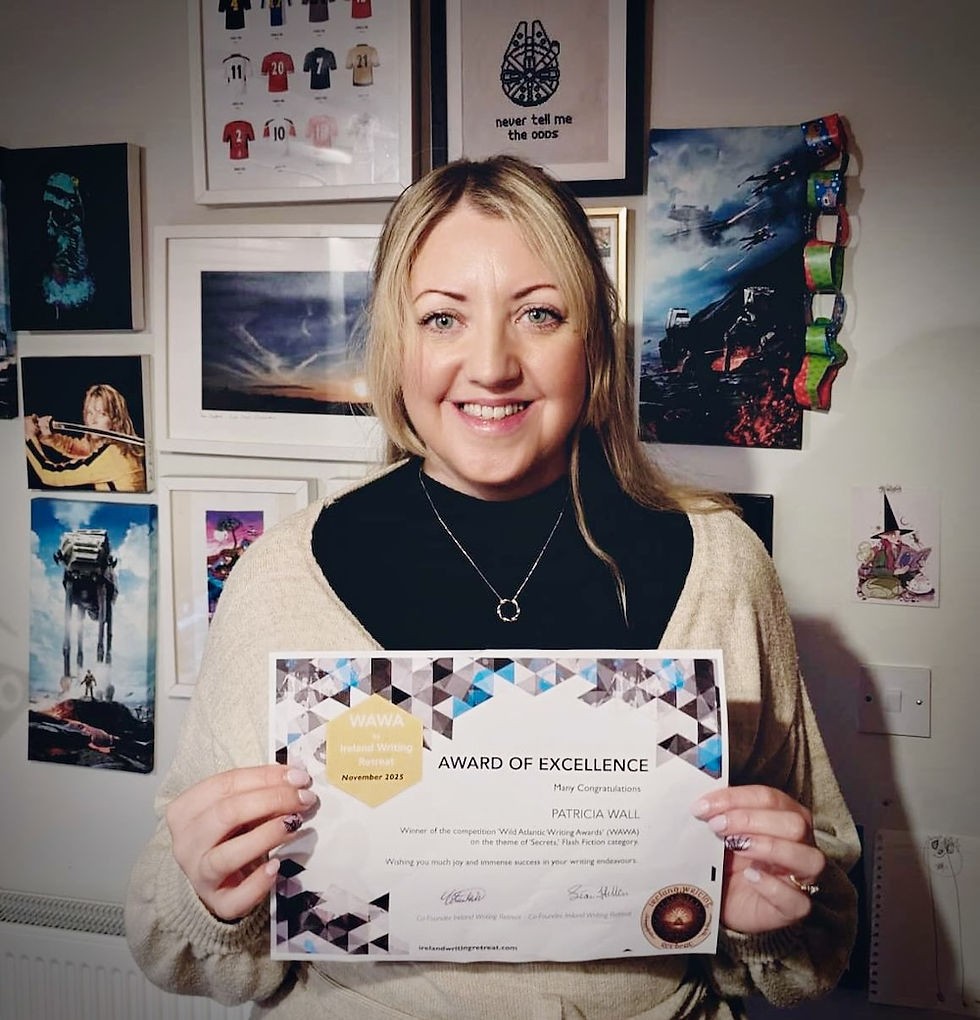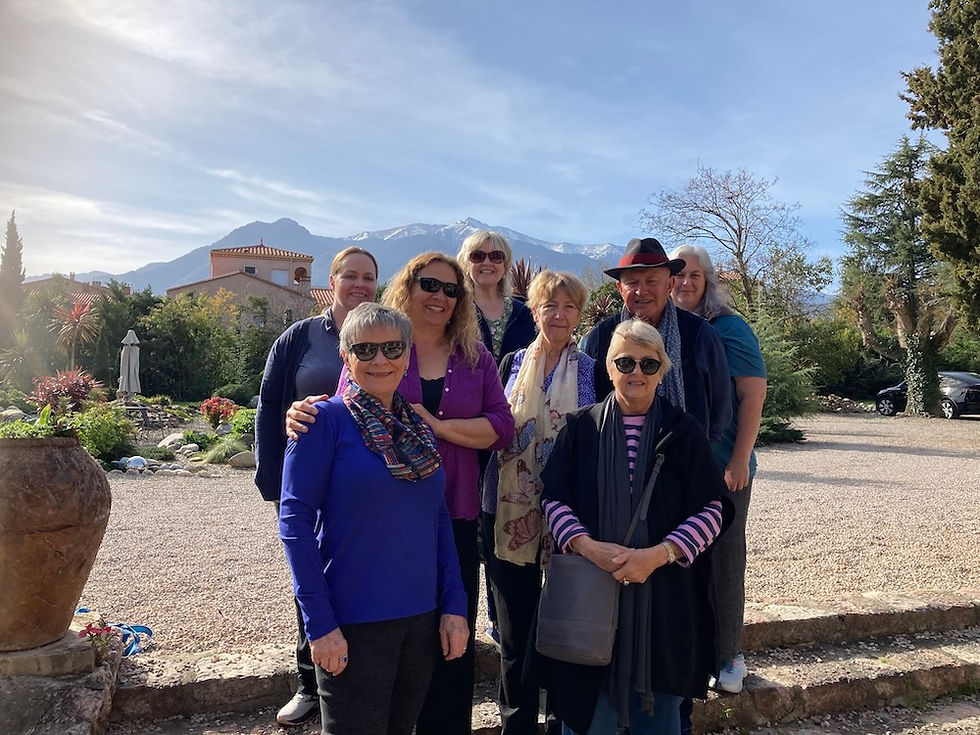How Does it Feel to Be Inspired by an Island?
- columbiahillen

- Jul 19, 2019
- 5 min read
Magical, mysterious!
And strangely, no-one knows how it got its name. It's steeped in Celtic Legend and Lore.
Gabhla, or Gola Island, lying just off Ireland's northwestern coast, is believed to be the inspiration for Robert Louis Stevenson's 'Treasure Island.'
Walking its wild and scenic pathways, it's easy to see how.
Luckily, those registered for our Autumn Writing Retreat will enjoy a special guided trip there. And maybe even a workshop on a cliff-top overlooking the Atlantic Ocean.
As a taster, here is how Sean Hillen, creative writing coach and author of 'Pretty Ugly,' was inspired by it.
Excerpt from 'Pretty Ugly'
Ernie’s gaze moved slowly along the entire length of the island from the craggy outcrop of bare quartz rock to the dense dark slice of bog and back again.
Nature’s wrath was plain to see. Shapeless heaps of rubble lay where sturdy, solid stonewalls had stood. Boulders that had once embraced each other closely like old comrades-in-arms had been cracked by age-old glaciers, torn from their centuries-old clasps, rolled along the ground and banished among the reckless, unruly grass and weeds.
The short rows of remnant houses that remained resembled a mouthful of broken teeth, bits and pieces missing or askew. Collapsed half-chimneys, broken doorways. Partial roofs displaying the sharp edges of gray-blue slates, their middle mere gaping holes open to the wind and rain. A few skeletal timber beams lay haphazardly in the air, flinging shadows here and there like gossamer.

Walls of some houses were cracked by the elements and sagged like tired, mutilated bodies after a battle. Others had vacant eyes for windows, the glass having splintered long ago, their tiny slivers spread on the grass verges below. For others, the struggle had been altogether too much and they had retreated, giving up another part of themselves with every assault until they had finally capitulated, leaving little behind but a few jagged shards of stone foundation.

The debris of centuries, Ernie thought. Boneless fragments of past lives. Where weeds abounded, he remembered verdant pasture for sheep and cattle. Where emptiness lay, he recalled the carefree, endless-summer calls of children. Where a front door hung lopsided on its rusty hinges, he pictured his mother gazing out to sea on a warm summer’s day, waving at a neighbor, unruly hens kicking up dust balls at her feet. Along these stony paths, in a time long ago, men walked sturdily, their boats high on their broad shoulders, herring and crab and lobster jerking spasmodically in woven baskets. Here tears were shed as the mighty ocean claimed its rights, a small graveyard a grim remainder of its supremacy. Here laughter and the buzz of conversation once rang out, echoing along the shoreline, as births led to marriages and marriages to births and the cycle of life rolled on like the surf-flecked waves beating upon the distant shore.

Ernie pulled his cap further down over his forehead as the first splash of rain struck his cheek, large heavy droplets that made the swaying grass twitch as if a surge of electricity had passed right through them. Above him hovered a squally scribble of purple clouds, a bunch of bruised fruit, pallid at the edges. It’ll be a wet one today, alright, he murmured to himself.
“If da place was made of sugar, sure we’d all melt inta tha sea.” The voice came out of the silence, as if carried on the rising wind itself. Ernie jerked round quickly, taken by surprise. A small, bearded man stood close to him, a faded corduroy coat hanging loosely off his shoulders like a blanket drying on a washing line. Its pockets bulged with this and that.
“It’s yourself, Seamus. Ya saw me comin’ I suppose.”
“No need for eyes, a chara. Sure, haven’t I the best ears in the county. I can hear grass grow.”
“Indeed, ye can. When ye want ta, that is.”
“Aye so. And yourself, are ye grand?”
“Middling so, can’t complain.”
“Sure who’d listen anyways.”
“Right so. Ye’re here with the supplies then?”
“I am, right enough. Second time this week. Was told just to leave them up outside at MacSuibhne’s old house. Bit strange if ye ask me. The goings on here.”
Ernie listened, feigning not to. He didn’t mean to reply.
“Not that I’m worryin’,” the man went on. “Pays grand so for a return crossin’. I’m after hauling four wooden boxes over on the boat. And another the day before last. Marked ‘Fragile’ and ‘Feed.’ What does that mean, ah ask ye?”

The man hesitated, his intent clear. Gathering information was like panning for gold. Each nugget worth a pretty penny in the poorhouse, as they used to say. Now worth a pint in the pub. No response coming as to the contents of the mysterious boxes, he tried harder.
“Feed for what? The seagulls? Sure, there’s not much else to be feeding aroun’ ‘ere.”
Ernie kicked a stone, idly scratching some stubble on his chin as he looked down, keeping his tongue tied to its moorings.
“Ah well, sure there’s no harm in it,” he said finally. “So long as ye get the price of a pint or two out of it.”
“Right so. And yon fella. Have ye seen him? A blow-in right enough. Bit touched if ye ask me by the looks of him. His hair looks like it just came outa washing machine. The Insect Man, they’re sayin’, down at Hiudai’s. Doesn’t say much. Be easier gettin’ water fro’ a stone.”
Ernie raised his head, tempted to speak, but resisted the urge.
“What brings ye over then? Its outa yere way a bit,” Seamus continued.
“Oh, just checkin’ on a few things, tha’s all.”
Silence ensued as the two men looked beyond each other, searching for the meaning behind the words between them, like grains of sand between toes.
“Well, ah better be off,” Seamus said finally. “A northwesterly headed this way. Bad time to be passin’ the Three Sisters. Ahv a stutter in ma engine’ll need fixin’. Catch ye later so.”

Ernie watched as the man made his way swiftly down along a grassy pathway past large flat yellow rocks into which the sea had carved deep incisions leaving it looking like giant pads of butter. He stopped at the edge of a narrow stone pier and waited until Seamus had reached a small boat bobbing gently on the rising tide there and loosened the rope tied to the iron ring in the concrete wall. The outboard engine sputtered, coughing up a plume of black smoke, then started on the second attempt. Man and boat faded into the gray waters offshore.

Ernie turned, moving upwind towards the abandoned houses, the bog moss soft underfoot, brown water oozing out from under his heavy boots with every step. He felt strange, as if he was trespassing on sacred ground, walking a place he didn’t belong to anymore. In the distance, he could see fog approaching, a fluffy gray pillow rolling gently along the sky. He watched it creep silently landward. It was as if the floating mists carried wisps of memory curled in their spidery nets. As if ghosts were coming ashore. Out at sea, in the caesura between waves, an eerie lull lurked. He remembered the wailing winds and the loneliness. He shrugged off the thought. He wouldn’t stay long. A quick check things were fine. He’d promised. Then he’d be gone. He took a folded sheet of paper from his coat and opened it. Two lists were typed neatly on it, one on each side. He scanned the first – ‘Arthropoda - cockroaches, millipedes, termites, earwigs, crab-spiders, grasshoppers, dragonflies.’ He flipped the paper over. ‘Lower Invertebrates - ribbon worms, mussels, anemones, hydra, jellyfish, slugs, limpets, cockles, moss animals, abalone.’
Above him lay a menacing sky. He had to be up at the house before dark. He’d promised Patricia. He fingered the keys in his pocket. He felt trusted but an inexplicable sense of apprehension rushed over him, of events out of his control. Secrets were hard to keep around here.








Comments